Well, that was a blast. DDD Europe 2018 is already over. And I loved it! Because I had lovely conversations, great insights and good learnings, I had the idea to create a summary, mostly for myself.
Pre conference workshop
DIY Event Sourcing Tooling
A pre conference workshop by Marijn Huizendveld on Tuesday and Wednesday.
This workshop about making your own event sourcing tooling was not exactly what I expected it to be. Nevertheless I had some good insights during this workshop, not all related to the workshop exactly:
- I still amaze myself by how quickly I can delve to deep into code and get lost in a problem (this is not a good thing). I need to force myself to take a step back and take the time to look at the problem I’m solving, why am I solving it,.. Maybe I should start thinking about using a very short pomodoro to force myself to stop and think.
- We implemented a DSL for Commands/Events. It took a while to see where we were going with this but I found it interesting to do things in a completely different way because this can give you new insights.
- We were asked to write 10 ideas down foor tooling, and Marijn forced us to think about it for a longer time than was comfortable. I like this technique to try to get new ideas. I’m going to try this out myself on some problems. By setting a number you force yourself to think about it hard. It might be that all the ideas are junk, but maybe some of them are worth something.
- I noticed that when doing a workshop like this, it’s important that some of your teammates are really proficient in the programming language and the ecosystem or you can lose a lot of time with this.
- A good heuristic I got from Marijn was when you have an idea, try it out for 2-4 hours and see if it’s worth something. If you have a good code base, it is possible to do a lot in this very short time span.
- Different experiences in a group is mostly a good thing, but it can also drag you down if the difference in experience in some domains is too big. In that kind of situation a part of the team will teach things to the other part. This is ofcourse a good thing as long as the people who teach are ok with this (maybe they want to get more out of the workshop).
My final conclussion about the workshop itself is that I’ve been really inspired by some simple tools and have some good ideas about good tooling in event sourcing. This is an area where there is a lot of room for good and simple tools or templates that you can implement in your code base.
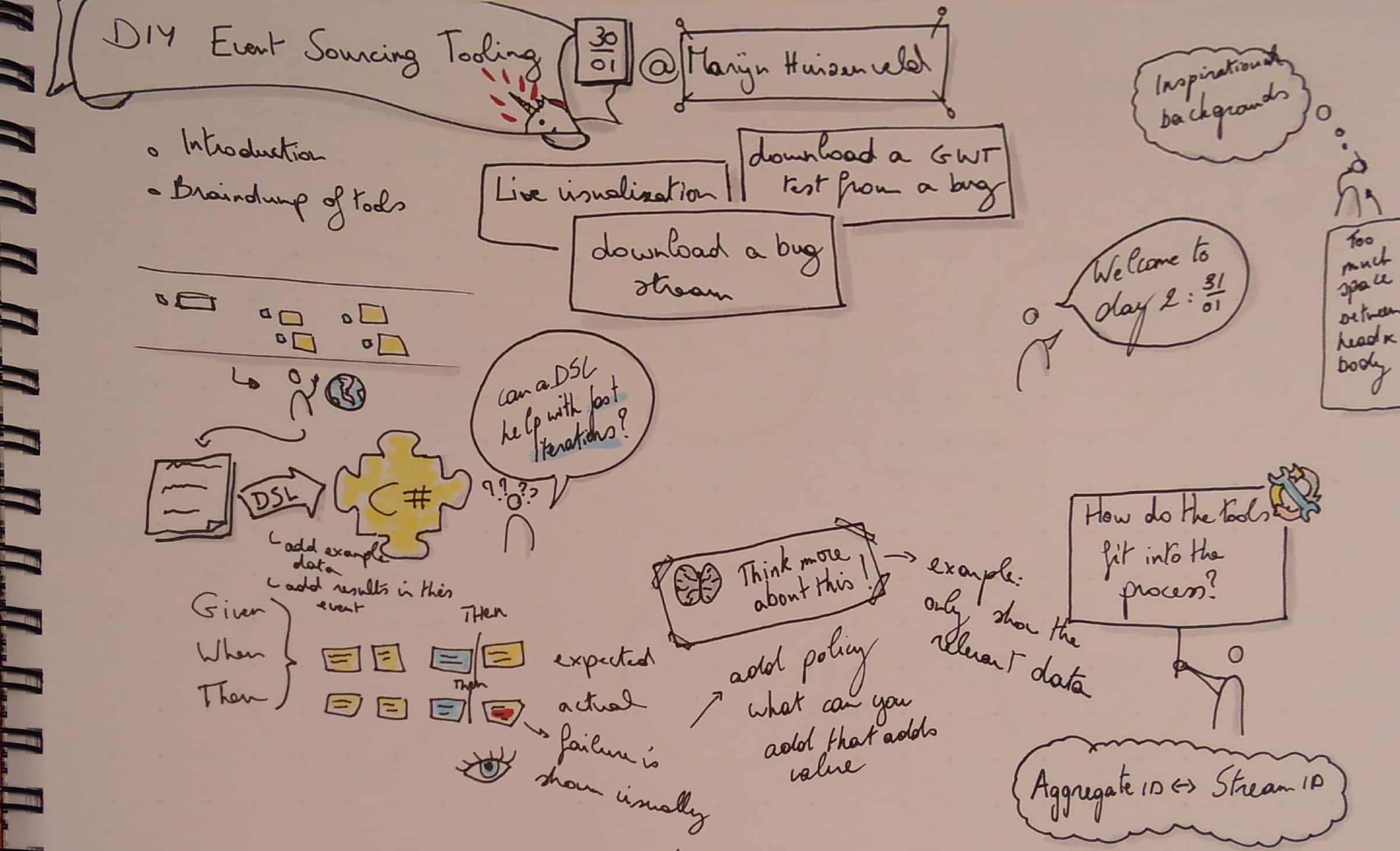
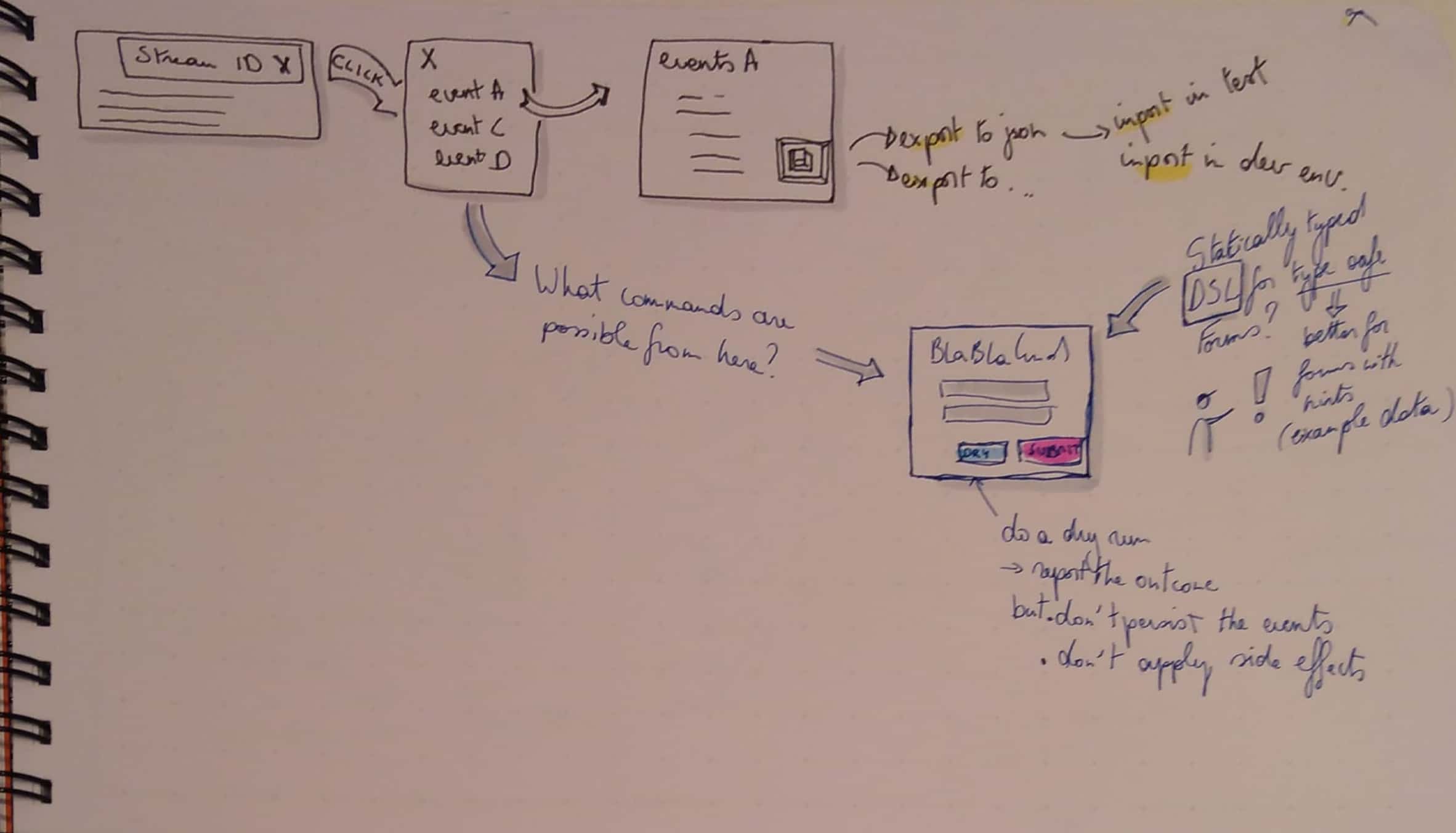
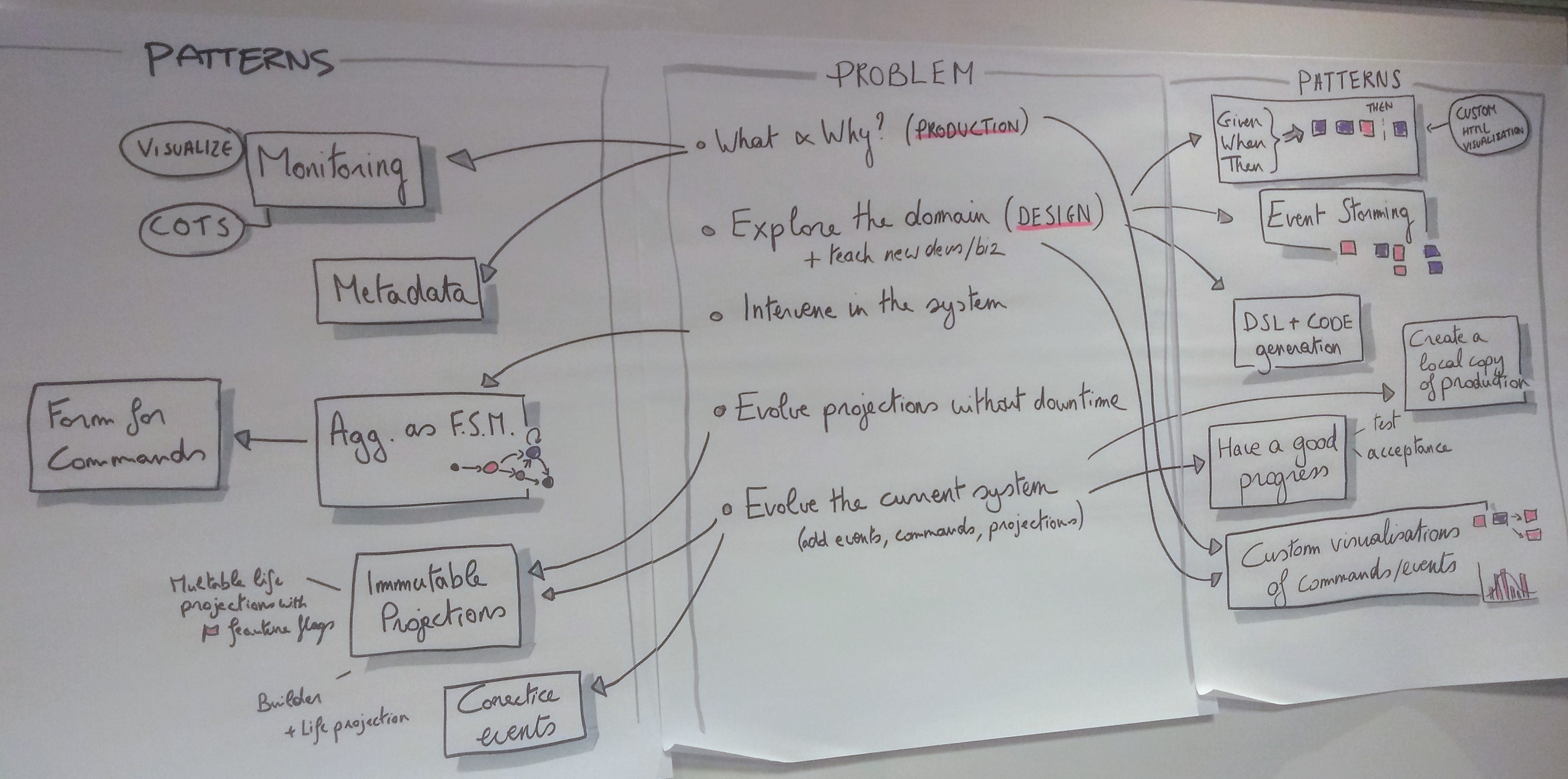
Thursday Feb 1
Keynote with Dave Snowden
A great opening keynote of DDD Europe, one way too hard to summarize and a talk that I will certainly watch again once the videos are out.
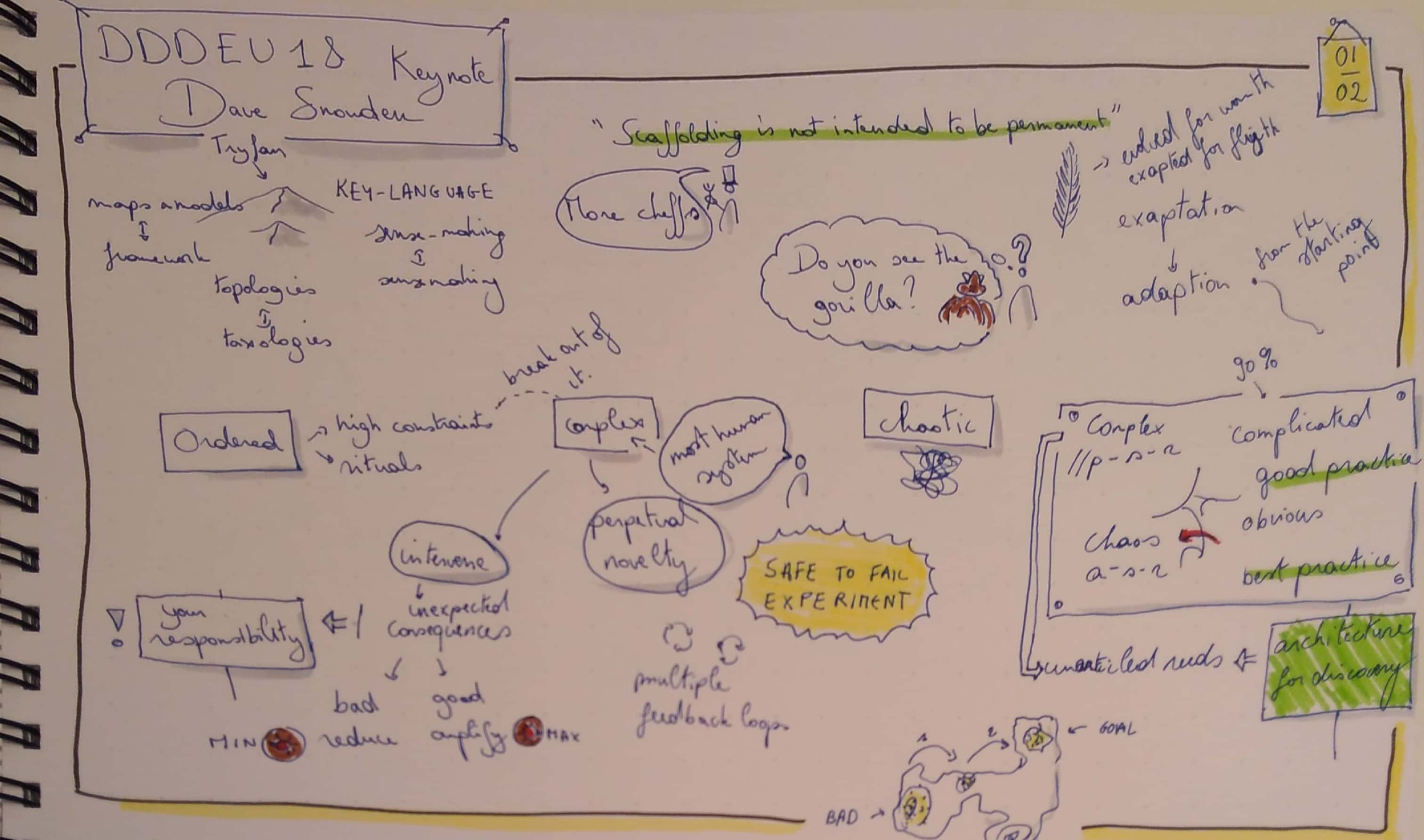
Crossing the River by Feeling the Stones
By Simon Wardley.
Simon is a great speaker. This was an awesome talk about strategy! I tried making sketchnotes, but it didn’t work. Simon presentend a huge number of slides and gets away with it. If you haven’t seen this talk and you’re interested in strategy, go watch it online as soon as it’s out.
From Legacy Chaos to the Promised Land of DDD
By Anita Kvamme and Ellen Lippe.
I wanted to attend this talk, but it was already fully booked, so I couldn’t go. I noticed a couple of times that the blue room was full and that some people couldn’t attend. I guess that’s one of the really hard things for the organizers to plan this correctly. I’m not sure if the problem can be solved. Luckely this room is also recorded, so I can watch the video later.
So I walked around for a small bit and got talking with Paul Rayner
Thinking about flow
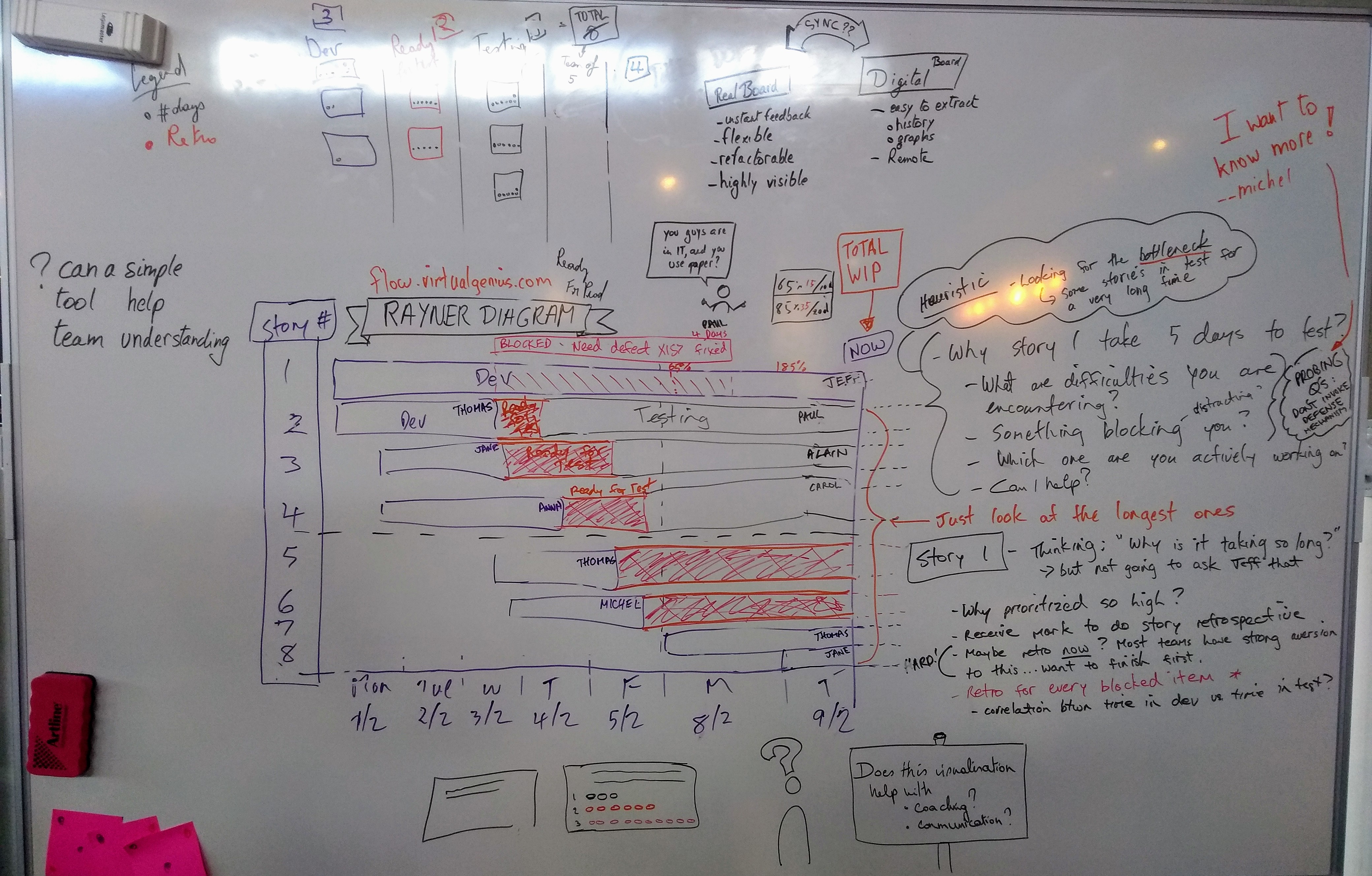
Keynote with Eric Evans
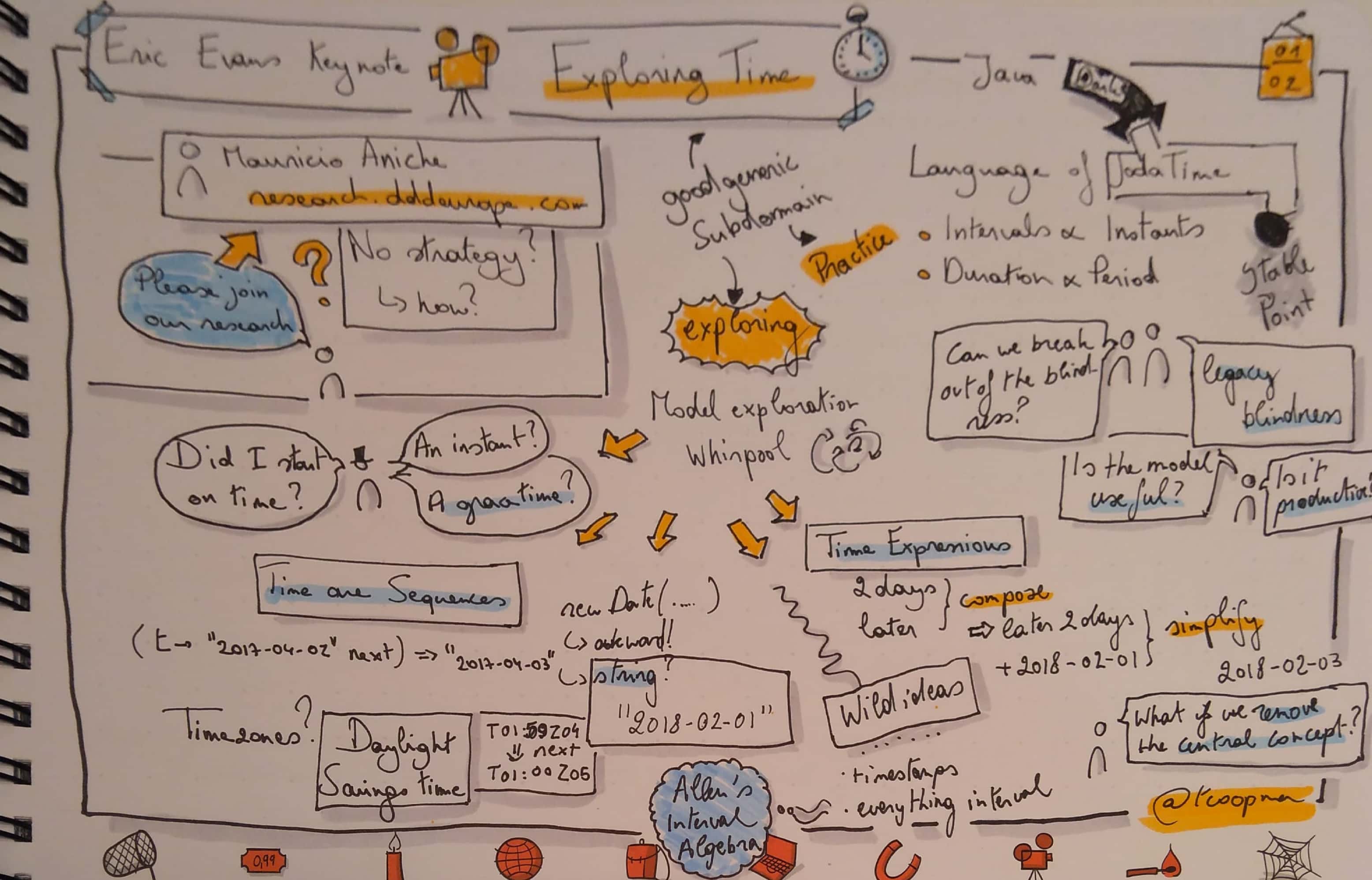
Friday Feb 2
The bandit, the housewife, the samurai and the woodcutter. The importance of multiple perspectives when moddeling software
Keynote with Avraham Poupko
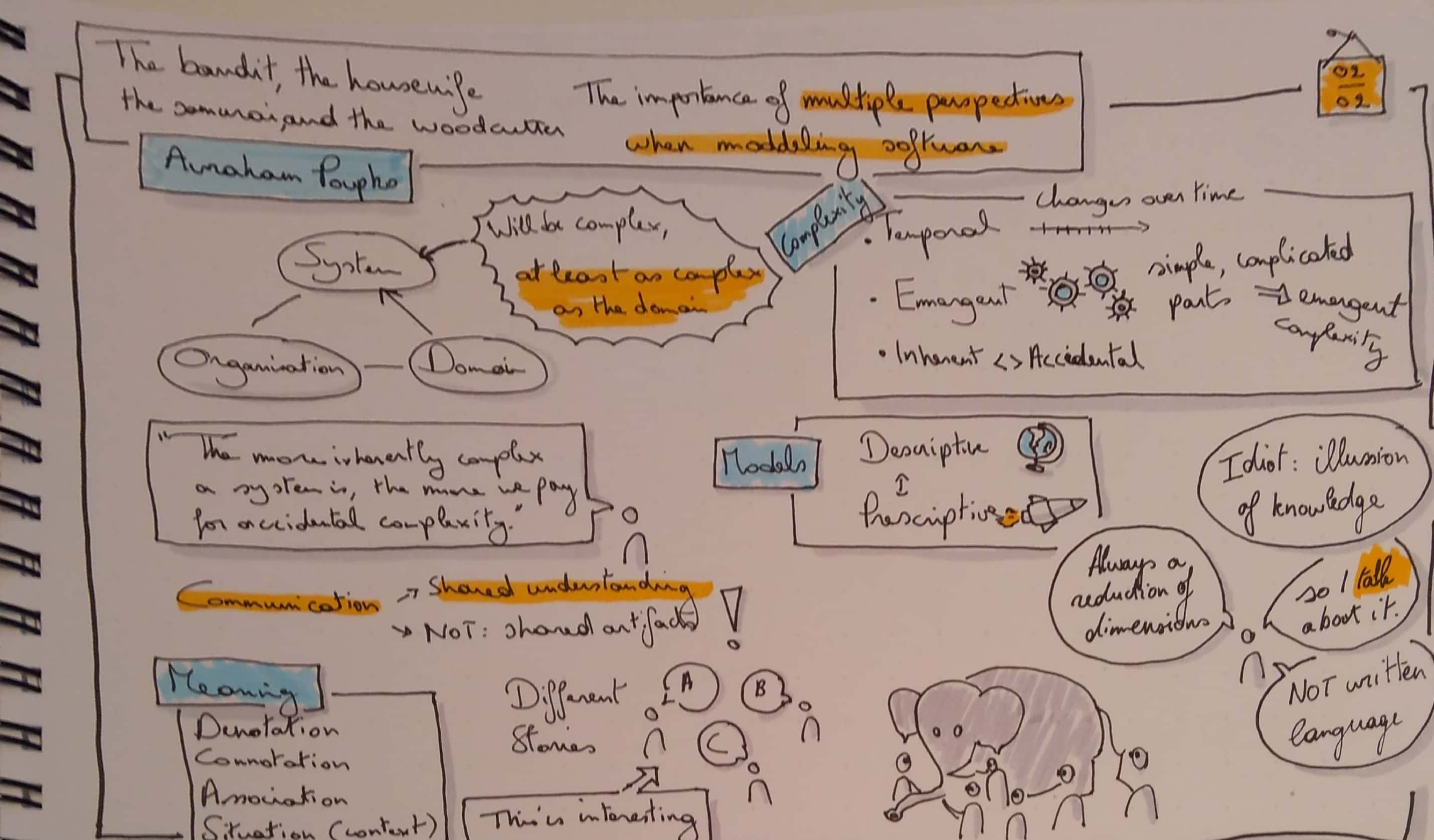
Front to back Event Sourcing
Nicole Rauch and Arnaud Bailly
Domain-Driven Refactoring
Well, this was my own workshop…